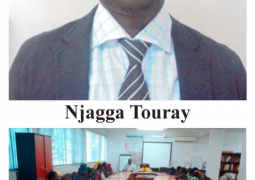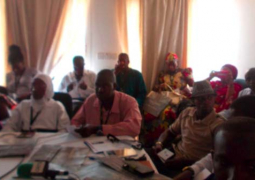Twenty-five community forest committee members recently concluded a two-day capacity building on market analysis and development approaches.
The programme, held in Kafuta village, was aimed at increasing the income base of small-scale or community-based forest enterprises for 10 community forest villages in West Coast Region. It also targeted 20 product-based interest groups.
The communities represented at the forum included Kafuta, Tumani Tenda, Besse, Ndemban, Berefet, Tampotoo, Kanuma, Jakoi Sibrik, Bulanjorr, Buram, Batending, and Kandonk.
Speaking at the meeting, Kaniman Camara, director of Natural Resource Consulting (NACO), stated that market analysis and development has been developed specifically to assist people.
He said the development of the market analysis is further aimed at achieving a sustainable livelihood system to increase household and community economic base to improve the people’s living condition, thus improve the natural resources management.
Communities are highly involved in the planning and designing of business plans and capacities for the local people to become entrepreneurs, he added.
Specific focus was given to environment and incoming generating opportunities, he said, noting that the principle objective was to increase income base on small-scale community-based forest enterprise.
He further revealed that the FAO, the
For his part, Alasan Kujabi, secretary of Sipaa Community Forest Park in Kafuta, said the programme emphasised the need to work with the communities situated around the community forest parks, to identify substitutive means of sustenance through a small-scale forest product enterprise development that is centred on non-wood forest products.
“The training is timely and will go a long way in assisting the local communities in the fight to reduce rural poverty, through improving food security and sustainable income activities for the local communities,” he said.
Ma Sanneh Jammeh, a participant at the programme, underscored the significance of the forum, saying the knowledge gained during the training would “make an impact” in their lives.
The training ended with a visit to the offices of ASSET and Banjulinding Beekeepers’ Association, to start putting into practice how to collect marketing information on such products as honey and honey wax, as well as to create linkages between enterprises and potential buyers.
Read Other Articles In Article (Archive)
Modou Jatta wins D140,250 LOTTO PMU
Sep 30, 2014, 10:24 AM




